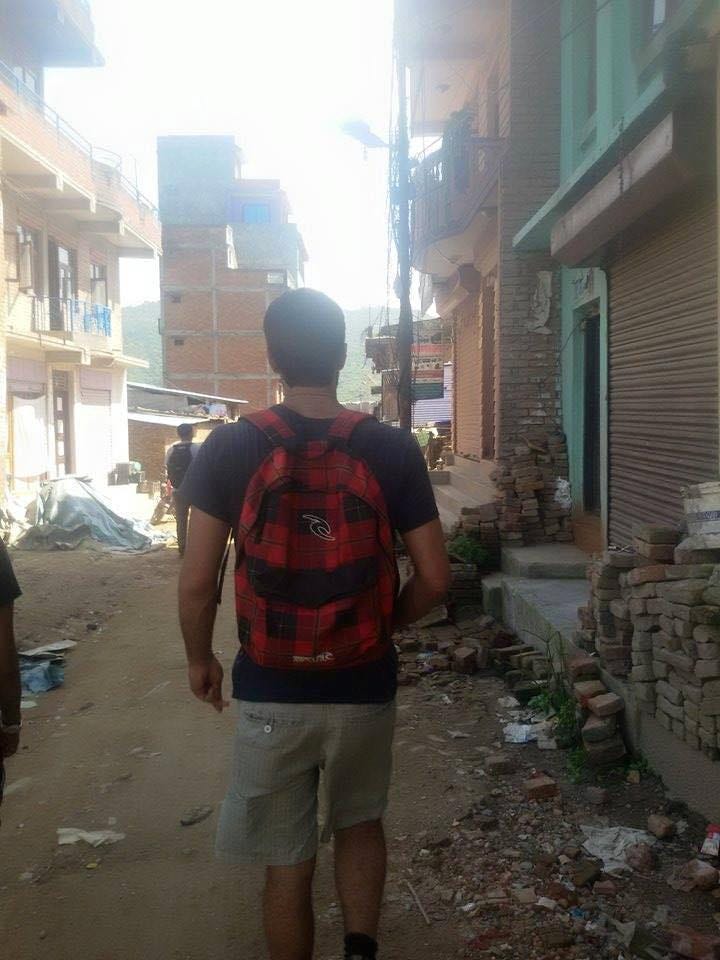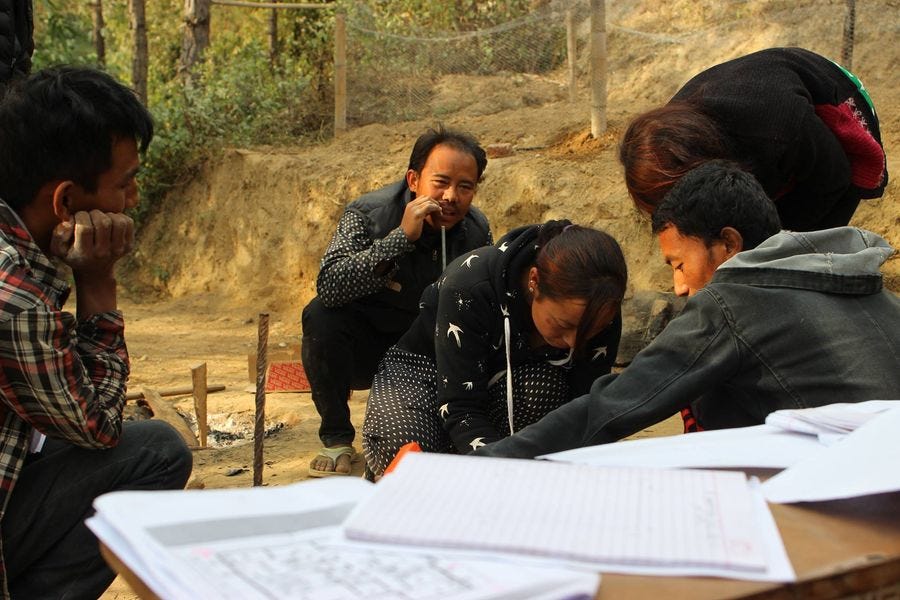
The Truth About Activists
It’s a story I still find hard to believe:
The year is 2015. Nick Abraham, aged 21, leaves his home behind in Australia to go to earthquake-ravaged Nepal, hoping to help rebuilding efforts. He’s thrown into a rural community where no one speaks English, and not only is there no power at night, there’s a fuel blockade, then a blockade on toilet paper.

His plans to move to Amsterdam after a short volunteering stint are scuppered. His 6 month trip quickly doubles in duration, then extends indefinitely.

Over the next three years, he flies back-and-forth three times for his grandparents’ funerals.
In this period he builds
two schools, a health centre and a home for members of the community. He faces material shortages, volunteer shortages, power shortages, labour shortages and monsoon seasons. Unable to incentivise labourers to come from Kathmandu to the remote village he’s working in, he starts training locals. The first of these villagers, Damphu, shows up for his first day of work and tries to use a drill as a hammer.
To create jobs in the community, Nick and his Nepal teammates start a construction company. He develops a brick machine that creates lego-style blocks out of earth, and uses this to build. This has commercial demand, so Nick and co. set up a brick factory, employing more locals in the process.
The Nepali men fight about having to work alongside the women in the community — so they come up with a division. Local women run the brick factory, men go onsite to do construction and carpentry. This is now one of the only places in rural Nepal were women get paid properly and can be promoted above entry level manual work.
Meanwhile, in the privileged suburbs of Sydney
I get an unsubscribe on our nonprofit’s email list — an email list that updates everyone on Nick’s works. I ask the young lady for feedback, and am taken aback by her reply.
Thanks! To be honest I love the work you are doing, but having attended your recent fundraiser, I just can’t support an organisation run entirely by cis-white males.
What? I think to myself.
I take a break, go get a cup of tea, play a bit of PlayStation (FIFA — Career Mode, in case you’re curious), and come back to re-read the email.
What?
I don’t know what appalled me more — her very obscure criticism given all Nick’s work in Nepal to empower women, or the fact she referred to me as white (I’m Lebanese-Australian, with dark olive skin).
This began a very polite two-week email war in which I, being the stubborn young smart arse I was, could not let her get away easily. It went a little something like this:
Joe: I’m sorry to hear that. It’s been very hard finding volunteers, let alone female ones, as positions in our nonprofit are unpaid. We do actually have our friend Alli, who is certainly female, joining soon. Also our factory in Nepal is entirely female-run. I would welcome any ideas you have to fix this situation.
Girl: Yes-yes, that is so great. I can ask a few friends who might be interested in this sort of work!
Joe: That would be great.
One week later, after no response.
Joe: Hello [Girl], just following up!
Girl: Hey! I haven’t forgotten, I’ve just been down at the Tent Embassy Protest in Canberra.
Of course you have, I thought.
Girl: But I’ll get back to you in a few days!
A few days later, with no reply from Girl.
Joe: Hey! Just following up again, I know you’re busy with other protests.
Girl: Yes, okay, I’ll get back to you!
Joe: Hey [Girl], just checking if you had any time to ask those potential volunteers you mentioned.
Girl: Hey Joe, unfortunately it was harder than I thought! All the women I approached agreed it would take too much energy to try and become involved in an organisation that is too dominated by cis-white males, sorry!
That’d be right.
Flipside of the coin — the world’s most honest activists
But this doesn’t speak for all protesters and do-gooders. It’s easy to let a few rotten apples spoil the barrel. Now I want to tell you a story that will restore your hopes in activism, social conscience, altruism and the goodness of people. I want to tell you about the world’s most honest activists.
Sankhu, Nepal — 2018.
Picture of Sankhu?
The year was 2018, the location — Sankhu, on the outskirts of Kathmandu, Nepal. I’m on a trip visiting my good friend Nick Abraham and seeing all the work happening in Nepal. It’s a week or so in, and I’m having a great time — seeing the brick factory, getting to know the locals better and visiting some of our projects.
Sankhu is not a touristy area, and Nick’s visitors and volunteers are usually the only Westerners in sight. But on this occasion, a group of young Americans are in town. Naturally, we go to say hello, get talking and exchange pleasantries. It turns out they are volunteers.
These young Americans didn’t just stay home to make rash judgements about people and situations they don’t understand, they made the effort to go abroad and immerse themselves in a different culture.
We bumped into them a few more times over the coming days. One day we saw them sitting with some local Nepali preparing big cardboard signs.
‘Hey guys,’ we said, ‘what are you up to?’
‘We’re helping these locals, helping them stand up for their rights, showing them how to protest.’
We look down to get a closer look on the signs. They have Nepali writing on them.
‘What do the signs say? What are you protesting against?’
They looked back at us and shrugged. ‘We don’t know.’




